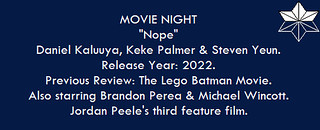Cast:
Richard Gere (Zack Mayo), Debra Winger (Paula Pokrifki), David Keith (Sid Worley), Robert Loggia (Byron Mayo), Lisa Blount (Lynette Pomeroy), Lisa Eilbacher (Casey Seeger), Louis Gossett Jr (Gunnery Sergeant Emil Foley), Tony Plana (Emiliano Santos Della Serra), Harold Sylvester (Lionel Perryman), David Caruso (Topper Daniels), Victor French (Joe Pokrifki), and Grace Zabriskie (Esther Pokrifk) Directed by Taylor Hackford.
Review:
It is hard to believe the age of some movies from time to time, probably more so when you get older and older. Released forty years ago in the summer of 1982, An Officer and a Gentleman manages to elevate material that seems destined for the old-fashioned bin into quality entertainment that makes for a useful romantic drama with solid casting and direction behind it. The movie came from director Taylor Hackford, doing his third film effort and second feature; his debut was a short called Teenage Father (1978), which won an Academy Award for Best Live Action Short Film. The Santa Barbara native was a graduate of the University of Southern California for pre-law and even served in the Peace Corps, and his spare time using a Super 8 camera got him into changing his interests. Douglas Day Stewart wrote the script for the film, which he based on experiences as a Naval Officer Candidate that saw both tough training and dating a factory girl when training in Rhode Island. Stewart did not get to fly nor get the girl, but he did do some time as a ship's officer before he became a writer on television, and his first film credit would come with The Blue Lagoon (1980). It is Hackford that elected to keep the ending of the film despite the objections of Gere (who thought it was overly sentimental), with the rehearsals of the scene ending up being the final persuasion for it.
Admittedly, it is the professionalism in its romantic drama settings that carry the film more than anything, showing its working-class pairings with general honesty. In an older time, a movie about Aviation Officer Candidates (AOCs) might have been ripe for the war effort, but this is a movie that actually wants to show growth with its lead performances and romance as something that isn't just point A to point B. Gere (fresh from his star role in American Gigolo (1980), which like this film was originally offered to John Travolta, who turned each down) makes for a quality hustler to watch grow, one wrapped in jaded pride. It is the vulnerability seen in one scene with Gossett Jr about who he would be without the training required that proves the most poignant. Of course, him and Winger make a quality pairing together, since they each have to show just why they aren't just only good for romantic scenes, which namely involves dueling prides from messed-up people with daddy issues. You aren't quite sure what will happen next with them, but they resonate well with each other that it becomes a moot point. It should be noted that Gossett Jr wasn't actually the original choice in mind for the Sergeant role, as R. Lee Ermey (a Marine drill instructor before becoming an actor) was originally cast, but Hackford decided to cast Gossett Jr instead while having Ermey serve as a technical advisor (alongside Buck Welscher, a drill instructor for AOCs). Gossett Jr proves exactly right for the role, hard driving but always on point for what is needed in emphasis. Any scene he is in, he commands it with no sense of hammy overtones (naturally, Gossett ended up with an Academy Award for his performance). Keith and Blount make up the other side of the romance angle in terms of superficiality that works best for the former in doomed charm. The others in the cast are generally interesting to see in bits and pieces, such as the spry Plana or Eilbacher, or with Sylvester and Caruso, while Loggia is only utilized for the opening sequence with Gere to show just how far the difference is between father and son. The second half does end quite well for itself, although it certainly has to strain itself a bit just to make it worth without folding into complete predictability, and I think the first half generally worked better in deliberate pacing, but it still works. For a 124-minute movie, it does utilize its time wisely in building the main and supporting characters necessary to make the final result all the more worth getting there. In the end, it carries itself to a general triumph of stirring romance and military drama that is worth the curious look all these years later.
Overall, I give it 8 out of 10 stars.













